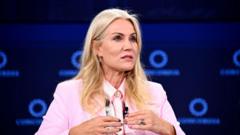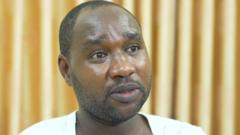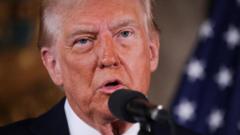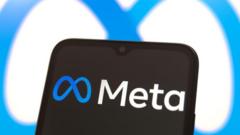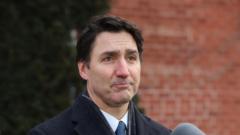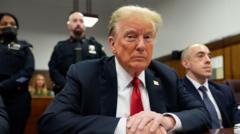Meta Platforms Inc. is set to terminate its independent fact-checking program on Facebook, Threads, and Instagram, opting for user contributions to identify misinformation. This change reflects the company’s strategy to embrace free expression amidst the political landscape surrounding Donald Trump's return to power.
Meta Discontinues Independent Fact-Checking Amid Shift Towards Free Expression

Meta Discontinues Independent Fact-Checking Amid Shift Towards Free Expression
The social media giant will end its fact-checking program, relying instead on user-generated notes, signaling a shift in policy during the upcoming Trump presidency.
In a significant policy alteration, Meta Platforms Inc. has announced that it will cease its independent fact-checking program across Facebook, Instagram, and Threads. This decision marks a departure from the company’s previous efforts to combat misinformation through third-party fact-checkers, with Meta now choosing to rely on its user base to flag potentially misleading content.
Mark Zuckerberg, the CEO of Meta, explained that this shift is aimed at refocusing the platforms on "free expression." He acknowledged, however, that this change could result in an increase in the dissemination of "bad stuff" on these social media sites. Zuckerberg described this outcome as a necessary "trade-off" to avoid the accidental removal of legitimate posts and accounts that can occur under stringent fact-checking protocols.
The timing of this announcement coincides with Donald Trump's anticipated presidency, as he prepares to return to the political arena. Reports indicate that Meta's leadership communicated this policy shift to Trump’s officials in advance. Along with this strategic change, Zuckerberg has also appointed Dana White, president of the Ultimate Fighting Championship and a close associate of Trump, to the company's board.
Trump and his supporters have reacted with approval, viewing this decision as favoring free speech. Conversely, various digital rights groups have expressed concern over the implications of dismantling the fact-checking initiative, suggesting it poses risks to the integrity of information shared on social platforms. This decision reflects broader tensions within the U.S. regarding misinformation, free speech, and the role of social media in political discourse.







